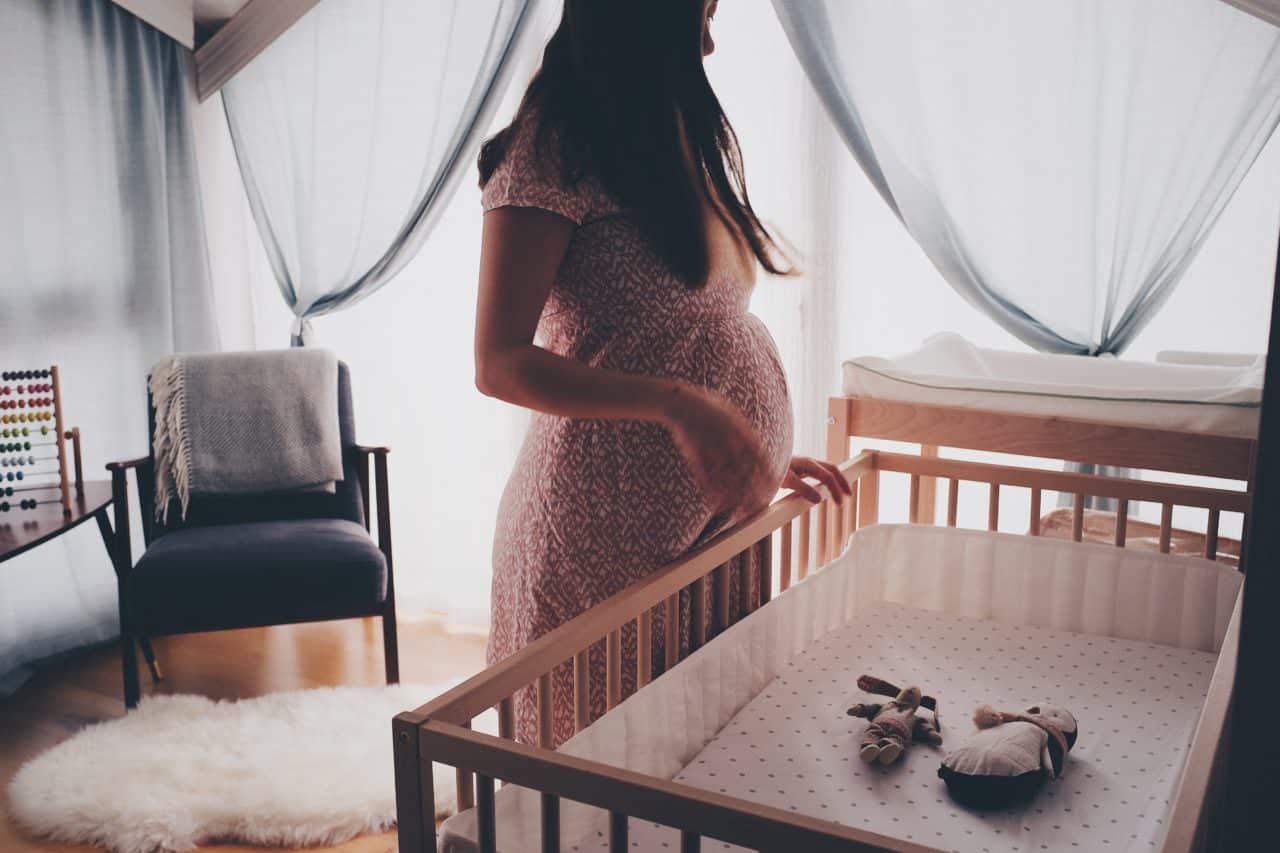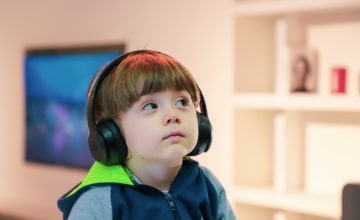Emerging Research and Reports Related to Expectant Parents and Families with Infants and Toddlers
Crib Notes is a monthly newsletter that offers members valuable information and insights to support you in your work with expectant parents and families with infants and toddlers. In this issue you’ll find recently published research, reports, and resources of interest to early childhood professionals. Be sure to join us on Member Connect, Facebook and Twitter to share your thoughts and stay up to date on the latest news and information from ZERO TO THREE.
These resources support ZERO TO THREE’s Competencies for Prenatal to Age 5 Professionals. The icon following the abstract identifies the relevant competency domain.
Research
Breakthrough Research Shows Some Behavioral Traits Emerge at Birth
Jane Kelly, UVA Today
June 25, 2021
The study examined individual differences in functional brain connectivity and aspects of behavioral temperament and affect in very young infants. “Our main findings show that soon after birth, greater connectivity between frontal and parietal brain regions is linked to improved behavioral regulation in human infants,” study co-author Grossmann said.
Cited Source: Variability in Infant’s Functional Brain Network Connectivity Is Associated with Differences in Affect and Behavior,(full text), C. M. Kelsey, K. Farris, & T. Grossman.
Frontiers in Psychiatry

How a New Mother’s Brain Responds to Her Infant’s Emotions Predicts Postpartum Depression and Anxiety
Eric W. Dolan, PsyPost
June 20, 2021
New moms at risk of experiencing depression and anxiety after childbirth tend to display a different pattern of brain activity compared to mothers who are not afflicted by the condition, according to recent, small study. “This research shows that differences in the way a mother’s brain responds to her [3-month-old] infant’s cries and smiles is associated with the development of postpartum depression and anxiety symptoms almost a year later,” according to researcher Finnegan. “Conversely, there was very little evidence of the influence of past depression and anxiety on how mother’s brains responded to their babies.”
Cited Source: Mothers’ Neural Response to Valenced Infant Interactions Predicts Postpartum Depression and Anxiety,, M. K. Finnegan, S. Kane, W. Heller, & H. Laurent
PLOS One

Bed Sharing Does Not Lead to Stronger Infant-Mother Attachment or Maternal Bonding
Olivia Mille, University of Kent
June 15, 2021
New research led by the University of Kent has found that there is no link between bed sharing, infant-mother attachment, and infant behavioral outcomes. The study analyses data from 178 infants and their parents, at term, 3, 6, and 18 months of age. No associations between bed sharing during the first 6 months and infant-mother attachment and infant behavioral outcomes (attention levels/hyperactivity and task persistence) at 18 months were found. Similarly, there were no associations between bed sharing during the first 6 months and maternal bonding and sensitivity in interacting with the infant at consequent assessment points.
Cited Source: Bed-Sharing in the First 6 Months: Associations With Infant-Mother Attachment, Infant Attention, Maternal Bonding and Sensitivity at 18 Months, A. Bilgin & D. Wolke
Journal of Developmental & Behavioral Pediatrics

Mothers’ Depression Impacts Mother-Infant Relationships
King’s College London News Centre
May 25, 2021
In a new study, researchers looked at the quality of mother-infant interactions 8 weeks and 12 months after birth in three groups of women; healthy women, women with clinically significant depression in pregnancy, and women with a lifetime history of depression but healthy pregnancies. At both 8 weeks and 12 months, mothers and babies in the depression and history-only groups displayed a reduced quality of interaction. Dr. Rebecca Bind, lead author, said: “Our findings suggest that perinatal mental health professionals should offer support not only to women with depression during pregnancy, but also to pregnant women with a history of depression, as they may also be at risk of interaction difficulties.”
Cited Source: Mother-infant Interaction in Women With Depression in Pregnancy and in Women With a History of Depression: The Psychiatry Research and Motherhood–Depression (PRAM-D) Study, R. H. Bind, A. Biaggi, A. Bairead, A. Du Preez, K. Hazelgrove, F. Waites, S. Conroy, P. Dazzan, S. Osborne, S. Pawlby, V. Sethna, & C. M. Pariante.
BJPsych Open

Meltdowns and Media: The Costs of Using Screens to Regulate Your Child’s Emotions
Sarah M. Coyne, Institute for Family Studies Blog
May 17, 2021
The purpose of the study was to examine associations between temperament, parental media emotion regulation, and problematic media use in young children, using both questionnaires and observational data. Researchers found that toddlers were most likely to tantrum when parents reported they used media to regulate their child’s emotions when upset (even after controlling for temperament in the model). This is one early indicator of problematic media use, which can lead to a media addiction when older teens and adults still rely on media to regulate difficult emotions.
Cited Source: Tantrums, Toddlers and Technology: Temperament, Media Emotion Regulation, and Problematic Media Use in Early Childhood, S. M. Coyne, J. Shawcroft, M. Gale, D. A. Gentile, J. T. Etherington, H. Holmgren & L. Stockdale.
Computers in Human Behavior

New Study Finds Infants of Fathers Incarcerated During Gestation Were Associated With Higher Odds of Adverse Outcomes Than Unexposed Births
Jared Sharpe, University of Massachusetts Amherst News
May 24, 2021
A new study of all live births and jail incarcerations in New York City from 2010–2016 has found that births exposed to paternal jail incarceration during gestation were associated with 58% to over 200% higher odds of adverse outcomes than unexposed births. “The main takeaway from our analyses is that paternal incarceration, even at lower levels (i.e., jail) and with varying intensities and across racial/ethnic groups, appears to be strongly associated with increased likelihoods of birth outcomes and conditions that impact health in infancy and over the life course,” says Yi, lead author of the paper.
Cited Source: Paternal Jail Incarceration and Birth Outcomes: Evidence From New York City, 2010-2016,Y. Yi, J. Kennedy, C. Chazotte, M. Huynh, Y. Jiang, & C. Wildeman.
Maternal and Child Health Journal

Reports
Milestones: How Parents Understand Child Development
C.S. Mott Children’s Hospital National Poll on Children’s Health
June 28, 2021
The C.S. Mott Children’s Hospital National Poll on Children’s Health asked a national sample of parents of children 0–5 years how they learn about developmental milestones and where they seek information or help if they have concerns about their child.

Historic Crisis, Historic Opportunity: Using Evidence to Mitigate the Effects of the COVID-19 Crisis on Young Children and Early Care and Education Programs
Gerald R. Ford School of Public Policy, University of Michigan, & the Urban Institute
June 2021
As the United States starts to recover from the pandemic, early care and education (ECE) leaders continue to need a clear understanding of the pandemic’s impact both on young children’s learning and on the ECE programs and teachers that play a critical role in the lives of young children, families, and the U.S. economy. To meet this need, a team of early childhood experts synthesized findings from 76 high-quality studies, spanning 16 national studies, 45 studies from 31 states, and 15 local studies. The team then collaborated with ECE policy and practice leaders from multiple states to identify actionable, evidence-backed, and equity-centered solutions for addressing young children’s immediate needs, stabilizing hard-hit ECE programs, and mitigating longer-term ramifications of the crisis.

Racial Equity Toolkit for Infant & Early Childhood Mental Health Consultation
The Center of Excellence for Infant & Early Childhood Mental Health Consultation
This new report and recorded webinar outline 14 critical priorities and actionable policies that federal and state policymakers can immediately and concretely use to advance equity in the early care and education system. This coordinated policy agenda can help build stronger, more equitable systems for all children.

State of the Field: Two-Generation Approaches to Family Well-Being
Anne Mosle & Marjorie Sims, Ascend at the Aspen Institute
June 2021
This resource is designed for policymakers, philanthropists, practitioners, researchers, and others interested in learning what the 2Gen approach has accomplished, why and how it has accelerated so quickly, and what different sectors can do to further its aims at a time when we are witnessing new and unprecedented energy and enthusiasm for bold change.

Viewpoint: Creating Anti-Racist Early Childhood Spaces
Rosemarie Allen, Dorothy L. Shapland, Jen Neitzel, & Iheoma U. Iruka, Young Children, Summer 2021
To enact and sustain an anti-racist approach, early childhood educators need to understand the racial history of early childhood programs and the racism in current early childhood programs. In this article, the authors outline the past and present along with strategies for creating anti-racist early childhood spaces.

Child Care State Fact Sheets
Child Care Aware of America (CCAoA)
June 2021
In January 2021, CCAoA surveyed state Child Care Resource and Referral (CCR&R) agencies or other key child care stakeholders in each state. The survey covered the following topics: child care supply and capacity, quality rating and improvement systems (QRIS), CCR&R services, child care initiatives, and annual child care prices. (Child care price data will be released by CCAoA in September 2021.) Respondents were asked to complete the survey based on data as of December 2020. A few states were unable to meet the survey deadline. Resulting data is available via clickable US map or downloadable PDF.

Assessing Models of Coordinated Services: A Scan of State and Local Approaches to Coordinating Early Care and Education With Other Healthy and Human Services
U.S. Administration for Children and Families, Office of Planning, Research and Evaluation
May 2021
A growing number of states and localities are working to address the many needs of families living in poverty by coordinating their services and funding streams. To improve understanding of approaches to coordinating early childhood education with other health and human services, the Administration for Children and Families sponsored the Assessing Models of Coordinated Services (AMCS) project. This report shares findings from a national scan of existing state and local coordinated services approaches.




